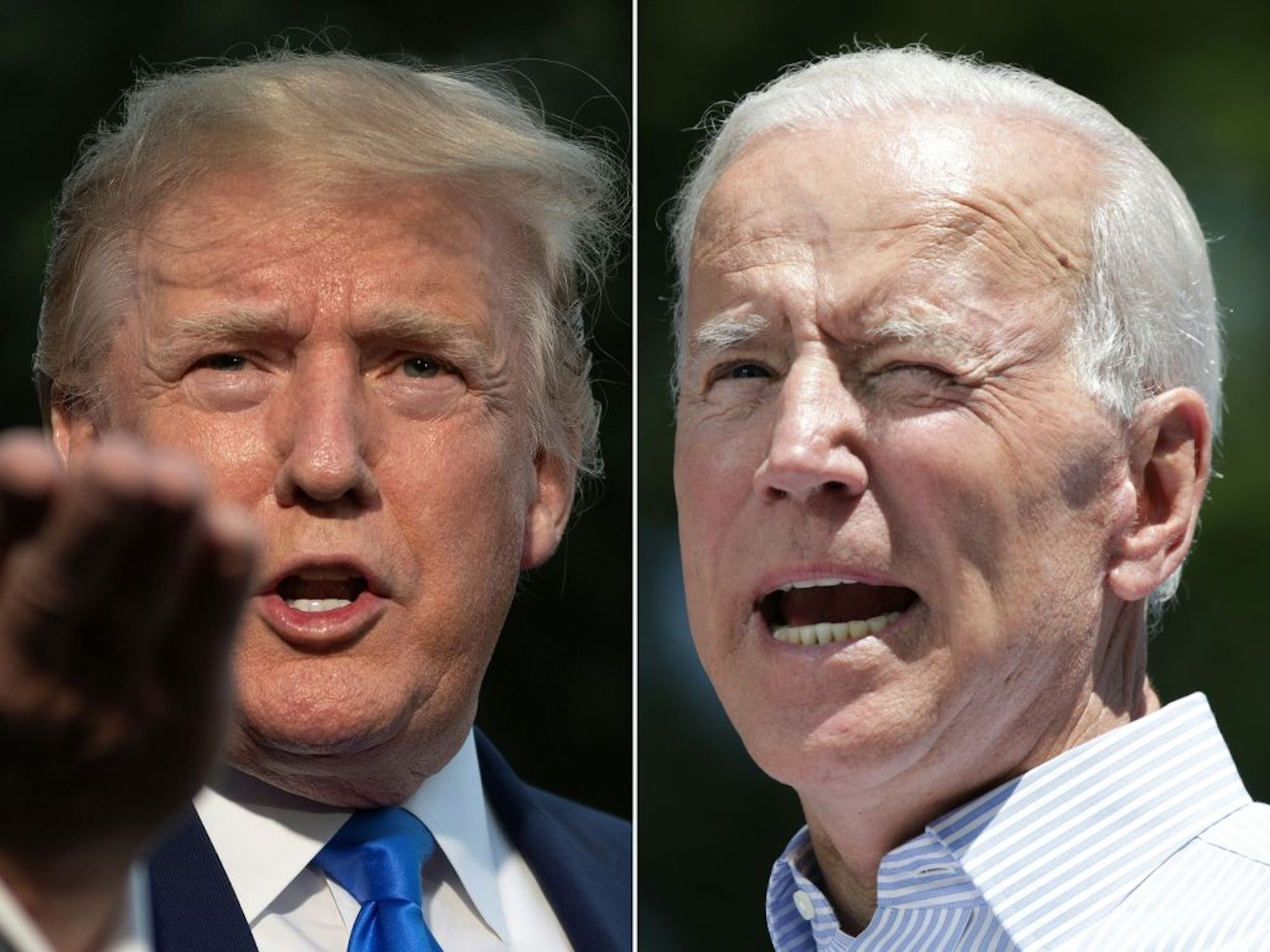- President Donald Trump and likely Democratic presidential nominee Joe Biden have both called for Section 230 to be revoked.
- Section 230 is part of a 1996 law on how content can be moderated on the internet, among other guidelines.
- The two politicians disagree on why the law should be revoked.
- Trump’s concerns involve the moderation of content on the internet, like recent fact-checks put on his tweets.
- Biden has said he wants social media sites to be held liable for the content posted on their platforms; currently they are not under Section 230.
- Visit Business Insider’s homepage for more stories.
The revocation of a provision in a 1996 law regarding the internet is one of the few things to bring President Donald Trump and likely Democratic presidential nominee Joe Biden to a consensus, but only slightly.
Both politicians have called for Section 230 of the Communications Decency Act of 1996 to be revoked; Trump in recent days has called for it to be revoked, and Biden said so earlier this year.
But, the two disagree on why it should be revoked.
Section 230 has been called the most important law for the internet. It provides “interactive computer services” like Facebook and Twitter the ability to moderate content on their platforms that is violent, harassing, “or otherwise objectionable,” without the platforms illegally infringing on people’s First Amendment right to free speech.
The law also includes a provision that bars sites like Twitter and Facebook from being held liable as publishers for the content posted on their platforms. While a newspaper would be held liable for false information produced and published by them, websites are treated merely as the medium and are not responsible for the content posted on their platforms.
These two points are at the center of Trump's and Biden's calls to revoke the law.
Why Trump wants it revoked
REVOKE 230!
— Donald J. Trump (@realDonaldTrump) May 29, 2020
"REVOKE 230!" Trump tweeted on Friday. The day prior, Trump signed an executive order directing federal agencies to alter Section 230 and change the way they interpret and enforce it.
The move came after Twitter flagged one of his tweets that made unsubstantiated claims about voter fraud and mail-in ballots. Twitter later flagged another of his tweets as "glorifying violence." Both were the the platform's first time to take such measures against the president, but the tweets remained accessible and were not taken down.
Trump's concerns about Section 230 center around the protections it provides to social media sites if they choose to moderate content. Trump and other conservatives have alleged that sites like Facebook and Twitter have exercised anti-conservative bias in their policing of content on their platforms.
Why Biden wants it revoked
Twitter and Facebook, among other sites, have been criticized for their hesitance to take down misinformation on their platforms. Specifically, Twitter has drawn ire because of Trump's tweets, which critics say are often misleading or spreading outright misinformation.
Twitter, and other platforms like it, are protected by Section 230 from being held liable for falsehoods or defaming statements published on their sites, while a newspaper could be sued for libel or defamation for statements published on their sites or in their papers.
Biden has said that companies like Facebook should be held liable for misinformation on their platforms. He told The New York Times' editorial board earlier this year that Section 230 "immediately should be revoked."
"It should be revoked because [Facebook] is not merely an internet company," Biden said. "It is propagating falsehoods they know to be false ... It's irresponsible. It's totally irresponsible."
His campaign did not immediately respond to a request to provide an update to his remarks in light of Trump's executive order, but the Biden campaign told The Verge on Thursday that "it will not be the position of any future Biden Administration … that the First Amendment means private companies must provide a venue for, and amplification of, the president's falsehoods, lest they become the subject of coordinated retaliation by the federal government."
